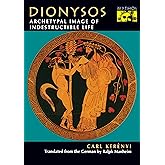
Download the free Kindle app and start reading Kindle books instantly on your smartphone, tablet, or computer - no Kindle device required.
Read instantly on your browser with Kindle for Web.
Using your mobile phone camera - scan the code below and download the Kindle app.

Follow the author
OK
The Homeric Gods: The Spiritual Significance of Greek Religion (Mythology) Hardcover – January 1, 1978
- Print length310 pages
- LanguageEnglish
- PublisherArno Pr
- Publication dateJanuary 1, 1978
- Dimensions5.5 x 1 x 8.25 inches
- ISBN-100405105584
- ISBN-13978-0405105586
Book recommendations, author interviews, editors' picks, and more. Read it now.
Customers who viewed this item also viewed
Product details
- Publisher : Arno Pr (January 1, 1978)
- Language : English
- Hardcover : 310 pages
- ISBN-10 : 0405105584
- ISBN-13 : 978-0405105586
- Item Weight : 1.05 pounds
- Dimensions : 5.5 x 1 x 8.25 inches
- Best Sellers Rank: #7,107,598 in Books (See Top 100 in Books)
- #37,265 in Ancient Civilizations
- Customer Reviews:
About the author

Discover more of the author’s books, see similar authors, read book recommendations and more.
Customer reviews
- 5 star4 star3 star2 star1 star5 star93%7%0%0%0%93%
- 5 star4 star3 star2 star1 star4 star93%7%0%0%0%7%
- 5 star4 star3 star2 star1 star3 star93%7%0%0%0%0%
- 5 star4 star3 star2 star1 star2 star93%7%0%0%0%0%
- 5 star4 star3 star2 star1 star1 star93%7%0%0%0%0%
Customer Reviews, including Product Star Ratings help customers to learn more about the product and decide whether it is the right product for them.
To calculate the overall star rating and percentage breakdown by star, we don’t use a simple average. Instead, our system considers things like how recent a review is and if the reviewer bought the item on Amazon. It also analyzed reviews to verify trustworthiness.
Learn more how customers reviews work on AmazonTop reviews from the United States
There was a problem filtering reviews right now. Please try again later.
- Reviewed in the United States on January 20, 2015Walter Otto was a brilliant scholar of the ancient world, and writes as if its deepest values and even beliefs are still current to those who can comprehend their wonder. An English scholar even describes his book DIONYSUS: MYTH AND CULT not as a scholarly work (read: objective) but a piece of Bacchic literature. This title does not display such a subjective identification with Greek culture, but consider the subtitle, THE SPIRITUAL SIGNIFICANCE OF GREEK RELIGION. Not mythology, religion; not historical or cultural significance, but spiritual.
And Professor Otto displays this spirituality throughout the book. I thoroughly appreciate as a student of myth, and deeply love as one committed to spirituality his approach. He is persuasive in portraying the ancient gods as believers felt their power and were convinced of their presence. His central thesis is that the Greek deities were gods of fully realized BEING, that they completely fulfilled their roles as lords of the universe, and that they were eminently worthy of the worship they inspired. Completely absent from his writing is any notion that Greek polytheism is a lesser spiritual reality than, say, Judaic monotheism; or that this religion (yes, religion, not mythology) can be reduced to the level of folktales as in the view of the Enlightenment. Poets over the intervening centuries have evoked these gods and goddesses with reverence approaching belief, Holderlin, Rilke, perhaps Keats. Otto is the scholar who provides an intellectual basis for such reverence. I have read this book twice; I hold it close to me, intellectually, emotionally, and yes - spiritually.
- Reviewed in the United States on January 4, 2019Along with Nietzsche’s Genealogy of Morality, no other book has so profoundly influenced my adult life. The sections on Athena and Apollo, in particular, will strengthen anyone of noble bearing, while the book as a whole serves as a perfect example of how moderns can not only study, but use, the heroic pantheon.
- Reviewed in the United States on January 19, 2022The book arrived on time in great condition, for a used book, that is.
- Reviewed in the United States on January 25, 2013The review below, "genius, genius, monstrously flawed"--otherwise very thoughtful and helpful--misleadingly suggests that Otto may have been an out and out Nazi. I quote below from Wikipedia:
'In 1934, the Nazi regime forced Otto to accept the offer to serve as the successor to Paul Maas, who was removed from his position for being of Jewish descent, in Königsberg. From 1933 to 1945, Otto was a member - and from 1935, the administrator - of the "Scientific Committee" of the Nietzsche Archive. In 1939 and 1940, he, together with Karl Reinhardt and Ernesto Grassi, published a yearbook entitled Geistige Überlieferung ("Spiritual Tradition"). In the introduction, Otto expressed his concern regarding the destiny of the classical tradition, and the yearbook was subsequently banned by the government. He was able to flee Königsberg in 1944, but through the process lost all of his possessions, including his personal library and manuscripts. From that point until the end of the Second World War, Otto found refuge in Elmau near Garmisch-Partenkirchen in Bavaria, where he entertained the local community with lectures and small theatrical performances.'
- Reviewed in the United States on January 27, 2005In many ways, this is incomparably the best guide ever written to Greek and especially Homeric religious ideas. Its historicizing theories as to the earlier and later elements of Greek religion were dead before Otto wrote it, killed by Dumezil's observation that the time elements in a mythical narrative are as much part of the myth as everything else and cannot be use to separate its elements; but its recreation of the Greek religious and imaginative world is unsurpassed. One just has to compare Otto's description of the leading gods with that of his more popular contemporary Kerenyi, to realize how much more vivid, concete, lively, and above all conclusive and certain, it is. Kerenyi parades before us his knowledge of complex data by setting us riddles that he only half-solves, and leaves in a cloud of slightly charlatan-like cleverness; Otto descrobes something that is internally coherent and externally commanding, and that, one feels, can easily have been the object of a cult. The last five words of his description of Athena are worth a whole treatise.
This being the case, why is Otto neither read nor reprinted, while other members of the same generation - Eliade, Kerenyi, Dumezil - live vigorously in the bookstore and the classroom? Well, one obvious reason is the translation. I do not think that there has ever been a case in the history of human thought in which a mind of such exceptional poetic and imaginative power has been saddled with a translator so completely deaf to all the merits of language. I doubt that there is a single sentence in this English version that could not be recast to sound better. The sense of plod, plod, plod, seizes any sensitive reader from page one, and never leaves.
However, there are more substantial reasons. The first is Otto's fantastically idolatrous attitude towards the Greeks. We would believe much more readily in their greatness if he did not remind us so often of it. There is hardly a page without its shower of superlatives about Greek inventiveness, joyousness, brilliance, etc.; and put, at that, in such an infelicitous way as to suggest rather a 13-year-old schoolgirl with a bad case of schwaermerei than an authoritative scholar. With this goes an ill-conceived contempt for everything that is not Greek, especially for anything that can be labelled as "Oriental"; expressed, this time, in the language of pompous professorial vagueness (anyone who has read an old-fashioned Italian or German scholar knows what I mean).
These are awful blemishes in the face of a work of genius; and yet I do not know whether, if they were removed, the work of genius would be even possible. Otto was, to be brutal, a Nazi, or rather a member of that awful, intellectually irresponsible, overeducated nationalistic penumbra of racist and immoralistic intellectuals out of which Nazism germinated. He approached the religion of the Greeks in the spirit, not principally of an analist, but of a lover, who loved everything about it - and that includes the brutality, the immorality against which even Plato complained, the ruthless sexuality and suppression of the feminine - as much as he hated Christianity, and he used the one as a stick to beat the other. It is an unfortunate fact that his magnificent imaginative recreation of the Greek mind is a direct product of his voelkisch and immoralistic philosophy.




![Homeric Gods 1954 [Leather Bound]](https://images-na.ssl-images-amazon.com/images/I/81nNKsF6dYL._AC_UL165_SR165,165_.jpg)



